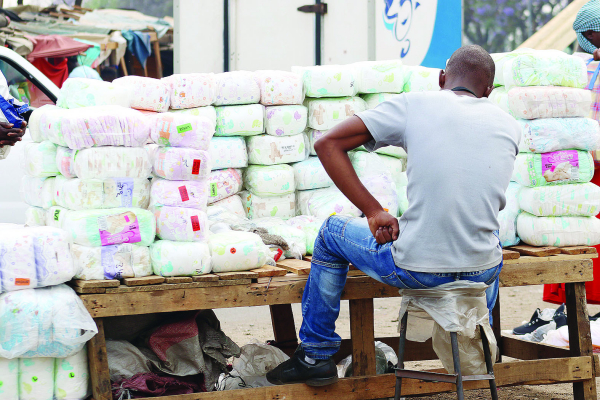
RETAILERS say informal traders are posing stiff competition and eating into their business. Confederation of Zimbabwe Retailers president Denford Mutashu told delegates at the Zimbabwe retailers and suppliers’ conference last week that retailers have the capacity to absorb locally-produced goods, but were facing stiff competition from informal traders who were eating into their business.
BY FIDELITY MHLANGA
“Retailers have the capacity to supply and sell all the locally-manufactured goods and I have spoken about having more players in the retail sector right now than any other time in the history of the country,” he said.
Mutashu added that it was sad that the viability of retailers, who contribute towards the fiscus through paying taxes, was being threatened by vendors.
“Surely there is more competition than is evident out there and the competition is bordering around serious unfairness. You have got your vendors; you have your informal traders. And yet on the other side we have formal retailers who are paying taxes. We pay taxes to the government, but the taxes that we pay as has been evidenced are not enough,” he said.
Econometer Global economist Tinashe Kaduwo told NewsDay that vendors were posing a threat to retailers as they sell most of their goods at significantly low prices at major supermarkets’ doorstep.
“Retailers’ concerns make sense. Unlike vendors who just come with their smuggled goods and start selling at supermarkets doorsteps, for instance, they have rentals and a tax burden they are carrying. Indeed vendors pose a threat to retailers as most the goods being sold by vendors are at significantly lower prices as they have negligible fixed costs to carry,” he said.
Another economist Clemence Machadu weighed in saying retailers’ complaints were justified because they meaningfully contribute to the fiscus through taxes and other levies, while also promoting local products.
- Chamisa under fire over US$120K donation
- Mavhunga puts DeMbare into Chibuku quarterfinals
- Pension funds bet on Cabora Bassa oilfields
- Councils defy govt fire tender directive
Keep Reading
“The government should not be seen to be supporting illegalities or frustrating the success of the very policies it is implementing to promote growth. Deliberate and concrete action must be taken to ensure that free riders don’t hurt the rainmakers,” he said.
Machadu said some of the informal vendors were also selling “smuggled imported goods that are under import management, which, again, threatens the very existence of protective measures that government came up with, and also affects local industry’s output”.
“Further, some of the goods may have expired, or not in compliance with the standards that safeguard the interest of consumers,” he said.











